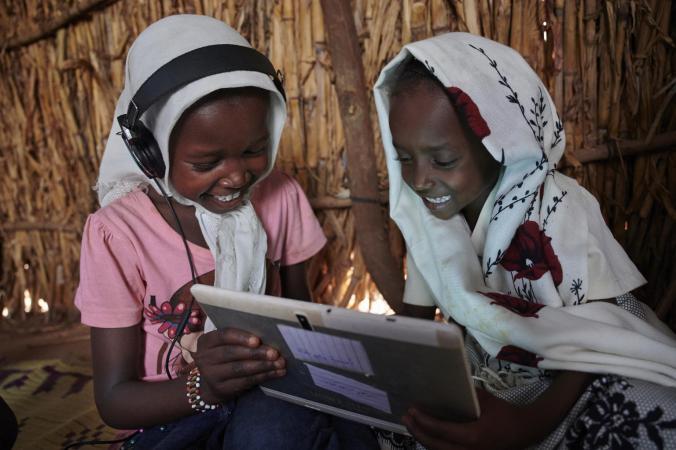
Education is critical in preparing individuals to lead healthy and successful lives by providing them with applicable educational experiences which nurture their talents, problem-solving abilities, and cognitive skills, including critical thinking and creativity. An increasingly critical factor in the enabling environment for improved learning outcomes in many African countries is educational technology. Within the last decade, technology has evolved so much so that every aspect of life requires one to have the skills to enable the student to thrive.
Policy makers and educators strongly believe that information and communications technology is critical to the future of education in Africa and beyond. This is part of the reason why the KIX Africa 19 Hub has previously spearheaded engagements such as Community of Practice on Education Management Information Systems and sessions on developing 21st century skills.
During the Hub’s recent African Continental Research Symposium co-organized by KIX’ two African hubs , education stakeholders and researchers highlighted three main ways in which Education technology is used in the continent; 1) use of ICT tools to enhance teaching and learning and learning assessment; 2) utilizing ICT to support teacher professional development; and 3) application for education management information system. Both policy actors and researchers are optimistic about the potential benefits of digital technology in education. However, as evidenced by country examples, the reality of using digital technology is both multifaceted and complex.
Country experience sharing
In Uganda, already great initiatives are being taken by both the Ugandan government and development partners to harness the potential of digital technology. For example, the Ministry of Education and Sports Uganda has facilitated training of digital skills for 550 student teachers in the five Primary Teachers’ Colleges of Nakaseke, Ndegeya, Lodonga, Arua, and Kibuli. Utilizing smartphones, the training has generated promising results on simple digital skills such as virtual searching for information and discerning which online sources are credible. This is greatly improving preparation and delivery of lessons. Some of the key issues to address are crafting an ICT in education policy, standardizing and guiding the implementation of digital skilling initiatives across all sectors, and addressing the challenge of Low Digital Skills Capacity in the formal education sub-sector to foster digital skills as highlighted in the digital education agenda developed by the ministry of education and sports.
The Rwandan government introduced a new competency-based curriculum, including ICT and 21st century skills such as creativity and problem-solving. To compliment the government’s efforts, organizations such as Three Stones International and The Flemish Association for Development Cooperation and Technical Assistance (VVOB) are partnering with the Rwanda government to develop ICT skills through programmes like SCRATCH which is a free tool that adolescents can use to create stories, games, and animations and is integrated in the new curriculum. Through SCRATCH, continuous professional development for teachers is undertaken where teachers are mentored to integrate SCRATCH into their lesson plans and to facilitate student coding clubs.
In The Central African Republic, Chad and Cameroon, education partners such as the Project for Adaptation, Resilience, and Innovation in Education (PARI), with support from IDRC and GPE, is working closely with the government to come up with innovative governance mechanism for strengthening the digital skills of in-service teachers by strengthening the digital skills of digital environment training actors. The technology acceptance model (TAM) is employed under the PARI project to assess adoption of technology based on teachers’, teacher-trainers’ and supervisors’ attitudes.Project for Adaptation, Resilience, and Innovation in Education (PARI) encourages all education partners including parents, teachers, school inspectors and government and non-government institutions to submit proposals for new and innovative ways of using technology to support inclusive digital learning environment to strengthen the skills of teachers and education supervisors in ICT use.
In the area of Education management information systems (EMIS), Ministries of education in countries such as The Gambia and Sierra Leone have successfully digitized their education management information systems and are using resultant data for decision making, particularly on learning assessment; a practice which Liberia is planning to adopt moving forward.
Moving forward
Policy makers and educators strongly believe that education technology can help remediate the challenge of learning loss in Africa which according to data from Early Grade Reading Assessments in Ethiopia, Kenya, Liberia, Tanzania, and Uganda is half to over a year’s worth of learning loss. The educators and researchers at the symposium called on policy makers to support digitalization of teaching and learning to enable continuation of learning during crisis situations. In addition, educators and policy makers called upon governments to strengthen their collaboration with telecommunications service providers to achieve the full benefits of education technology.
